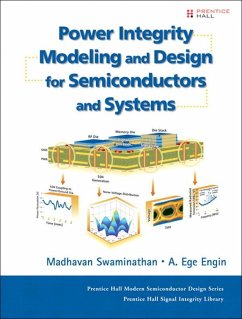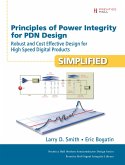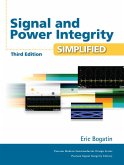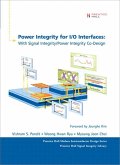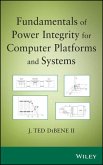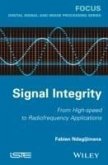The First Comprehensive, Example-Rich Guide to Power Integrity Modeling
Professionals such as signal integrity engineers, package designers, and system architects need to thoroughly understand signal and power integrity issues in order to successfully design packages and boards for high speed systems. Now, for the first time, there's a complete guide to power integrity modeling: everything you need to know, from the basics through the state of the art.
Using realistic case studies and downloadable software examples, two leading experts demonstrate today's best techniques for designing and modeling interconnects to efficiently distribute power and minimize noise.
The authors carefully introduce the core concepts of power distribution design, systematically present and compare leading techniques for modeling noise, and link these techniques to specific applications. Their many examples range from the simplest (using analytical equations to compute power supply noise) through complex system-level applications.
The authors
- Introduce power delivery network components, analysis, high-frequency measurement, and modeling requirements
- Thoroughly explain modeling of power/ground planes, including plane behavior, lumped modeling, distributed circuit-based approaches, and much more
- Offer in-depth coverage of simultaneous switching noise, including modeling for return currents using time- and frequency-domain analysis
- Introduce several leading time-domain simulation methods, such as macromodeling, and discuss their advantages and disadvantages
- Present the application of the modeling methods on several advanced case studies that include high-speed servers, high-speed differential signaling, chip package analysis, materials characterization, embedded decoupling capacitors, and electromagnetic bandgap structures
This book's system-level focus and practical examples will make it indispensable for every student and professional concerned with power integrity, including electrical engineers, system designers, signal integrity engineers, and materials scientists. It will also be valuable to developers building software that helps to analyze high-speed systems.
Dieser Download kann aus rechtlichen Gründen nur mit Rechnungsadresse in A, B, BG, CY, CZ, D, DK, EW, E, FIN, F, GR, HR, H, IRL, I, LT, L, LR, M, NL, PL, P, R, S, SLO, SK ausgeliefert werden.

